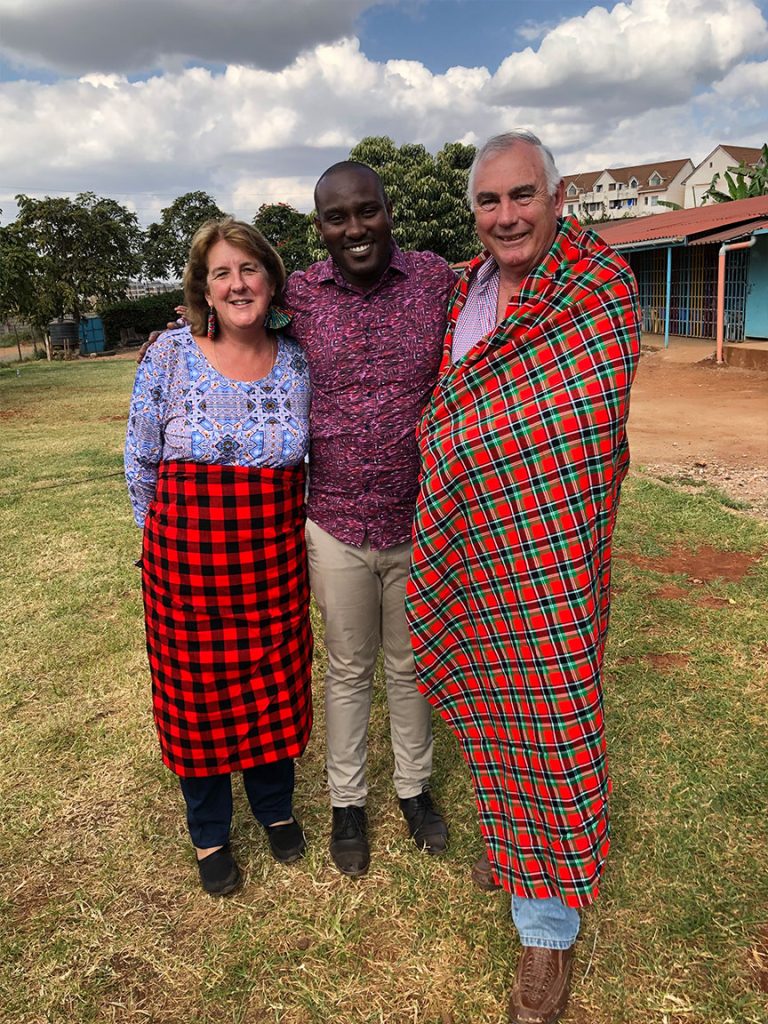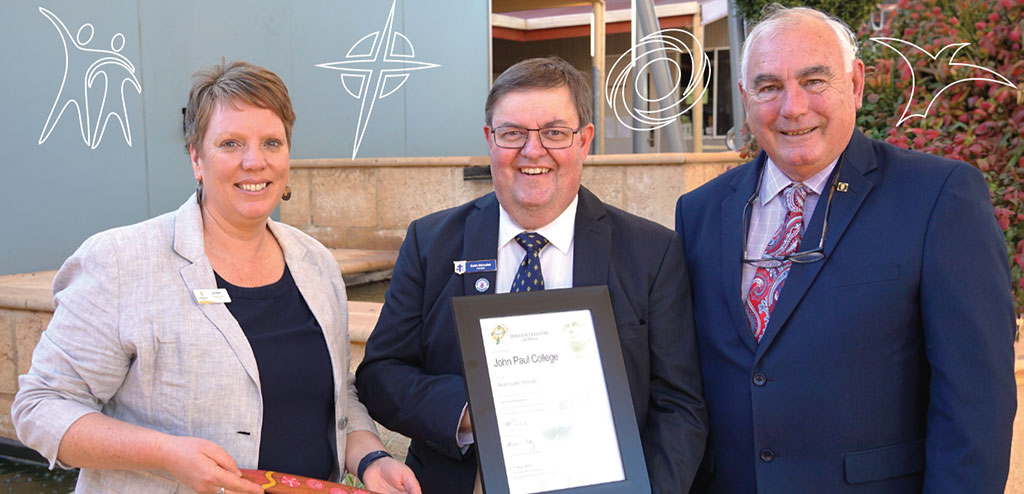The Ricean recently sat down with Dr Michael Slattery, the new Chair of the EREA Council and Trustees.
Welcome Michael. Congratulations on your new role. Would you provide a snapshot of your early life and the schools that formed you?
We were a typical Catholic family of five children and my parents were very active in the life of our parish at St Dominic’s Flemington in NSW. Life was very typical of families in the 1960s struggling to provide for their children, but it was a happy environment, and there was never a dull moment in our home. My father attended St Patrick’s College Strathfield, and my brother and I attended Christian Brothers College Burwood, for our primary and secondary schooling. My sisters attended Domremy College after primary school. Later, I attended the Catholic College of Education to become a teacher, and then several universities to study the arts, education, leadership, spirituality and theology.
You have also taught in a number of Edmund Rice Schools. What were they and what roles did you hold?
I have taught in Christian Brothers Bondi Beach, St Thomas High School Lewisham, and St Edwards College East Gosford. At these schools, I held the roles of classroom teacher, Pastoral Co-ordinator, KLA Studies Co-ordinator, Religious Education Co-ordinator, Deputy Principal, Headmaster and Principal. I have also held the roles of Schools Consultant, Acting Director of Schools and Director of Schools, in Catholic Education Offices.

Above: Michael and Alison Slattery with the Edmund Rice Foundation in Nairobi, Kenya
You have had a long association with Edmund Rice education and commitment to the Charism. What attracted you to joining EREA Council and the Trustees?
I was encouraged by Deputy President, Mr Peter Turner to think about joining Council as its Treasurer and felt I could contribute positive leadership and support to its members, our governing boards and our EREA schools across the nation. As I reflect upon it, I believe it was a calling from Church, and as I am still enthusiastic about education of young people, I know these things happen for a reason. I’ve devoted many years to my self-development and to developing and forming others in Catholic school leadership, school improvement and quality teaching and learning, including lecturing in the MEd educational leadership program at ACU since 2010 to this day. I do think it is important for educational leaders to be present and active in the governance space when dealing with the governance and supervision of schools. Educators ‘understand schools’ and I hope that I can work with fellow Councillors, and our five Governing Boards, to ensure our school leaders feel supported and listened to and that, apart from being compliant with regulatory authorities, the schools they lead are quality and vibrant Catholic schools in the Edmund Rice tradition.
What do you hope to achieve during your term as Chair and President of EREA Council and Trustees?
I would like to focus on three main aims during my time with EREA. The first would be to work with the Council to fulfil the Prophetic role, which really involves the collaborative development of key directions for EREA to ensure that the charism of Blessed Edmund Rice is expressed in ways that are relevant to our times and faithful to the ministry of Catholic education, particularly as part of the mission of the Church in continuing the work of Jesus Christ.
My second major aim is to ensure that we play a Custodial role to make sure that the proper works of EREA are carried out in accordance with the Gospel tradition and the charism of Blessed Edmund Rice, and with its canonical statutes, its civil constitution, and the responsibilities expected of them.
Last but not least, I would like to focus on the Relational role of Council, which is to witness to and exercise transformative leadership that facilitates authentic, collaborative relationships within EREA and in relationship with the wider Church and community. Developing and maintaining lasting relationships with the Council and Trustees, Bishops, Regulatory Authorities, each of the members of our five Governing Bodies, our leaders in schools, Flexis and ELCs. I’d be delighted if these three areas were at the heart of my role and that they were addressed well.

Above: Jo Hart (EREA Director Formation and Culture), Keith Nicholas (Principal – John Paul College, Kalgoorlie, WA) and Dr Michael Slattery at the EREA Associate Schools presentation
The EREA Touchstones are central to an Edmund Rice education and have captured the imagination of schools, educators, and students and young people over the past decade. What do the Touchstones mean to you?
I was fortunate to be present when the Touchstones were being implemented into EREA schools and worked to align them with the leadership of St Edward’s College at East Gosford. They have real relevance and meaning to the students and align with Gospel values and the Jesus story in a meaningful way. They are so important as they guide our girls and boys to a counter cultural way of seeing the world and their place in it. My hope is that all our graduates are able to navigate the way, in spite of some negative popular secular traditions, and work toward developing a better nation and globe, free of violence, greed, and disharmony. The Gospel message and our Touchstones go a long way to giving our young people the tools necessary to survive such challenges in their lives, and our teachers do a great job ensuring the messages are heard and understood.
EREA is part of a vibrant global community of 280 schools in 21 countries. This global family has had a significant impact on your life over the past decade. Would you share some of your experiences?
The EREA Touchstones are really responsible for my wife, Alison, and I having a combined interest in advocacy for the poor and for leading 15 adult and senior student spiritual leadership immersions to Edmund Rice led ministries and schools in Kenya over the years. The Touchstones gave me the impetus to begin the Edmund Rice East Africa Ministries (ERMEA) group in 2013, and I have led conferences and provided professional development with them on a regular basis ever since. We have conducted a Review of Governance for Edmund Rice led Ruben Centre in Kenya, and support several key projects and programs of Edmund Rice Foundation Kenya each year.
The opportunity to work together with colleagues from across the world is a great privilege. I have seen the powerful impact it has had on both our Australian student and teachers, as well as our partners in Africa. Our global network provides a wonderful opportunity for our schools to partner and collaborate beyond borders, and to be part of building a better world for all humanity.


